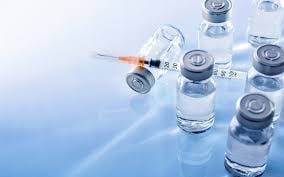The Japan Cancer Vaccines market size is expected to reach USD 1,470.4 Million by 2026 according to a new study by Polaris Market Research. The report “Japan Cancer Vaccines Market Share, Size, Trends, Industry Analysis Report By Type (Prevention Vaccines, Treatment Vaccines, Oncolytic Viruses); Indication (Prostate, Cervical, Others); By Patient Type (Pediatric, Adult); By Regions, Segments & Forecast, 2020 – 2026” gives a detailed insight into current market dynamics and provides analysis on future market growth.
For several years now, Japan has been experiencing a boom in the incidence of cancer patients. Cancer is one of the major causes of death in Japan. As cancer prevention, the people in Japan mainly follow their traditional low-fat diet which has proven to be effective however, there are certain limitation to this as high salt in the Japanese diet can act as a potential risk for development of stomach cancer. Though Japanese government is promoting various new ways of prevention and treatment of the disease, implementation of cancer vaccines in the healthcare regime is a must and it is necessary for the government to take steps towards usage of these vaccines in Japan.
The primary factor driving the growth of this market in Japan is the growing rate of prevalence of incidence. According to the National Cancer Registry system, in 2016, around 995,132 new patients were diagnosed with cancer of which 566,575 were men and 428,499 were women. Each year, about 10,000 Japanese women are newly diagnosed with the disease while 3,000 die from it. With growing number of patients there is a rising need for a preventive measure that could help stabilize the increasing rate of incidence. Furthermore, growing government initiatives to generate awareness amongst people, and increasing research and development activities are also fueling the growth of this market in Japan.
For instance, in January 2018 the University of Tokyo signed an agreement with the Kanagawa Cancer Center in Yokohama and BrightPath Biotherapeutics for development of a personalized cancer vaccine using a novel method involving the body’s immune response. Furthermore, in February 2018, Japanese Patent Office issued a decision to grant a patent covering the use of cancer vaccine technology for the treatment of a range of cancers in humans and animals. Such initiatives and research activities are with an aim of improving the cancer vaccine product line in the Japanese market and thus, fuel the growth of this regional segment.
In 2013, HPV vaccines were added to the national vaccine program in Japan. The same year, several complains were registered proving the side effects associated with cancer vaccines in Japan. This was the major reason for the suspended its recommendation and usage in Japanese industry. Before the suspension around 70% of adolescent girls received the immunization as prevention from cervical cancer. However this number dropped to less than 1% after the health ministry suspended its active recommendation after reports of side effects including muscle pain, sleep disorders, and light and sound sensitivity. Furthermore, companies also restrict from opting to manufacture cancer vaccines as it is a time consuming process with high cost of development and initial setup. These and many such factors are expected to hinder the market growth of cancer vaccines in the Japanese industry during the forecast period.
View more info@ https://www.polarismarketresearch.com/industry-analysis/japan-cancer-vaccines-market/request-for-sample
Japanese government and many local and international companies are taking initiatives to develop the cancer vaccine industry in this region. In order to promote and develop regenerative medicine and cell therapy in Japan, the Act on the Safety of Regenerative Medicine and the Revised Pharmaceutical Affairs Law was enforced in November 2014. Also, Advanced Medical Care is accepted in Japan to evaluate a medical technology at one’s own expense, together with the National Health Insurance, at institutes and hospitals approved by the MHLW. The technological intervention includes regenerative medicine and immunotherapy, the safety and efficacy of which have not been established by previous clinical studies.
Furthermore, many companies are conducting clinical trials to develop and launch innovative vaccines that could help the cancer patients. Companies such as Cytlimic, Aduro Biotech, Oncolys BioPharma, and Otsuka are some of them who have initiated many projects focusing on enhancing their cancer vaccine product line. These initiatives have attracted international funding and thus has created significant growth opportunities for established and emerging players in the global and Japanese cancer vaccines market. The key players in the market include Aduro BioTech, Inc., Astellas Pharma, Inc., Bristol-Myers Squibb, tella, Inc., Oncolys BioPharma Inc., CYTLIMIC, Takeda Pharamceutical, and Takara Bio among others.

Polaris Market research has segmented the Japan Cancer Vaccines market report on the basis of vaccine type, indication and patient type
Japan Cancer Vaccines Types Outlook (Revenue, USD Million, 2016 – 2026)
- Prevention Vaccines
o HPV
o HBV
- Treatment Vaccines
o Antigen vaccines
o Dendritic cell vaccines
o DNA vaccines
o Whole tumor vaccines
o Anti-idiotype vaccines
- Oncolytic Viruses
Japan Cancer Vaccines Indication Outlook (Revenue, USD Million, 2016 – 2026)
- Prostate
- Cervical
- Others
Japan Cancer Vaccines Patient Type Outlook (Revenue, USD Million, 2016 – 2026)
- Pediatric
- Adult

